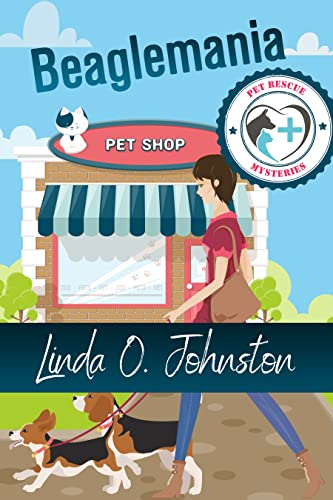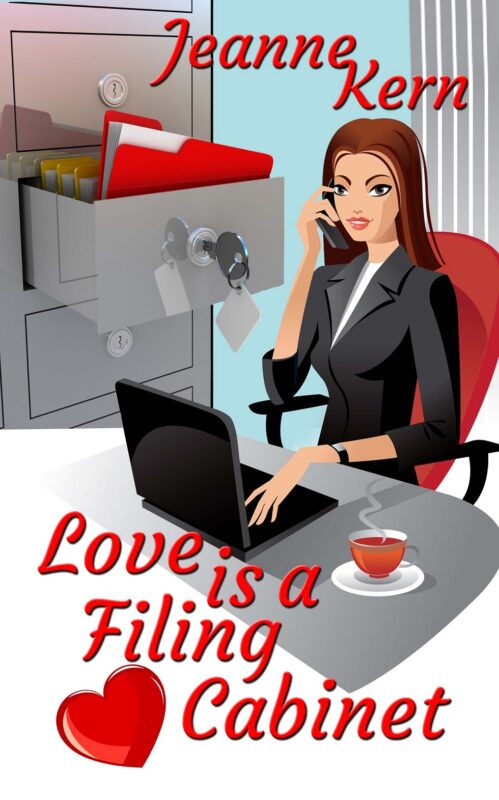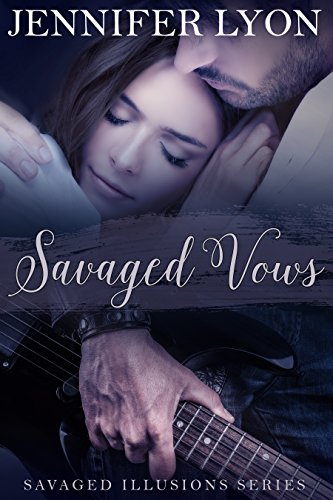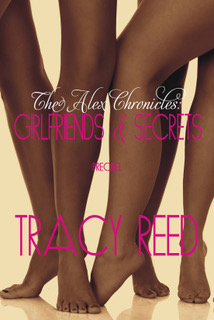FLOWERS IN THE ATTIC: A Terrifying Tale of Backlists
March 15, 2011 by A Slice of Orange in category Archives tagged as backlists, Digital only publishing, strategy, writing processOne of the strangest books ever written was Flowers in the Attic (V.C.Andrews). There is lots to talk about with this book (incest, misguided religiosity, family acceptance and love) but those are topics better left to a book group discussion.
What really terrified me was the premise of that book. A mother locks her kids in the attic and forgets about them. The children languish, nearly dying in that attic, until they rise up and confront her. They are no longer willing to be locked away. And that brings me to the topic of the day: books, backlists and half finished manuscripts locked in our creative attics.*
My friend and fellow author Brian Drake deals beautifully with the subject of discarded manuscripts and whether the are salvageable in his blog Bringing Back the Dead , so I would like to focus on the opportunities and challenges traditionally published authors face when dealing with their backlist.
My own career has been neatly split in two distinct genres: Romance/women’s fiction and legal thrillers/police procedurals. Over 26 years I had my rights reverted to all 23 of my novels as soon as I was contractually able. I had no idea then that rights reversion would turn out to be the smartest move I ever made. In control of my work, I was perfectly positioned to digitally publish, POD or self-publish my literary inventory. I chose to concentrate on digital publishing, taking advantage of the explosion of E-readers.It took a year to scan all my thrillers, create covers, edit for scanning errors, properly format and upload my 11 book backlist. The effort was worth it.
My faith in my thrillers has been rewarded by good sales, excellent reviews and a growing following. I realized, though, that I had the advantage of name recognition as my fan base moved from paper to IPads, Nooks and Kindles.Spurred on by this clear opportunity, it seemed logical to follow the same strategy with my early books (romance and single title contemporary women’s fiction). Yet when I went to my literary ‘attic’ and opened the door I didn’t exactly find my ‘flowers’ in full bloom.
The truth was that some of my work should not be resurrected. The very first book I wrote was creatively tentative, predictable and descriptively overwrought. This was a far cry from the intricately plotted books I penned later in my career. In short, it was clear I had learned a lot between the first book and the last. I tried to convince myself the craft didn’t matter. Books were books and someone would like these. But I also realized many more people would be put off by these early efforts. That would impact both my reputation and my sales. I might never be able to convince those readers to give me another chance. When I weighed the pros and cons it came down to this: would I be proud to have these first books in the hands of an avid reader? For three books, the answer was no.
I want to make it perfectly clear, I am not ashamed of anything I have written. All my books were published by respected New York publishers. Each represents my best effort at that stage of my career but some of those books are not representative of the author I have become. When a reader chooses to sample my early work, I want them to hear my unique voice (I had no POV in the three I will not re-publish). I want the reader to be engaged in a multi-layered story (my early work is linear). I want a reader to get to know well-drawn characters that live in a complete universe (my early characters were two dimensional and their universe limited).
In my memory, I believed my attic was full of fabulous books; in reality, I had stored away my building blocks. I am wise enough now to recognize that the reader’s experience is more important than my ego. Just because I wrote a book twenty years ago does not make the work viable today unless it clearly shows emerging strengths. If I republish my initial stumbling as I tried to find my literary feet, I run the risk of alienating a reader rather than piquing their curiosity. I want each book to show how I have grown as a writer. Bottom line, if any of my work might waste a reader’s time or money it should be set aside.
So, as much as it pains me to admit it, as hard as it is to close that door, there are some flowers that need to stay in my attic. I am ever so grateful that they are there to remind me of where I’ve been, how far I’ve come and that writing is hard work. I might visit them once in a while but, like V.C. Andrews has shown me, sometimes there are reasons you need to lock the door and walk away.
*These thoughts can be applied to any creative effort: painting to pottery, music to manufacturing.
1 0 Read moreDon’t forget to SHOW
March 12, 2011 by A Slice of Orange in category Archives
Job Interview Questions for Your Romance Novel Heroine
March 11, 2011 by A Slice of Orange in category Archives tagged as Confessions of a Podcast Goddess, heroine, Interview, job, regency, reporter, romance, romance novels, vampire, Victorian
by Evelyn Q. Darling
Romance Reporter At Large
Is your romance novel heroine qualified for the job?
Did you interview her before you started writing? I don’t mean where she went to school, what her favorite color is, etc. but whether or not she’s qualified for the job as a romance novel heroine.
For example, does she have the skills needed to perform her job: Can she shoot a Glock if you’re writing an FBI agent? Lace up a corset if she’s interviewing for the job as a Victorian lady’s maid?
Or she may be overqualified for the job. For example, she can type faster than you or she has aspirations to leave the romance novel field and get a literary gig.
How long has she been out of work?
Romance novel jobs are hard to get and if it’s been decades since she slipped between the pages of a novel, you might want to reconsider. On the other hand, experience between the sheets is important for every romance heroine.
A typical interview could go like this:
Miss Jones, I’m writing a novel that takes place during the Regency Period. Are you a fan of Jane Austen?
Miss Jones: Jane who? I’m so into Lady Gaga. Love her sunglasses.
Next…
Miss Smith, my next novel is about an FBI agent who’s very physically active to catch the bad guys. Can you drop and do twenty?
Miss Smith: the only thing I dropped was twenty pounds to get this interview.
Let’s try again.
Miss von Rittenhaus, I need a romance novel heroine who sleeps all day and bites all night. Can you list your qualifications to be the vamp queen in my new urban fantasy novel?
Miss von Rittenhaus: Honey, I can snooze and cruise with the best of them. I’ve hit every vamp bar from here to
When can you start?
Miss von Rittenhaus: Tonight. As soon as the sun goes down. (Pause). You haven’t mentioned a benefits package.
What do you mean?
Miss von Rittenhaus: Do I get overtime pay for all this night work? And how about a 401K? I’m not getting any younger and in this economy a girl, I mean vamp, has to look out for herself. What about my e-rights? And health benefits? What if I chip a fang and I have to see a dentist between chapters?
Jeez…Romance heroines…you can’t write with them and you can’t write without them.
This is Evelyn Q. Darling. Till next time when we’ll interview the romance novel hero and see if he’s up for the job.
The Blonde Samurai: “She embraced the way of the warrior. Two swords. Two loves.â€
Jina Bacarr is also the author of The Blonde Geisha ,Cleopatra’s Perfume, Naughty Paris, Tokyo Rendezvous, a Spice Brief, and Spies, Lies & Naked Thighs
Favorite Author Crush Moments by Kitty Bucholtz
March 9, 2011 by A Slice of Orange in category Archives tagged as It's Worth ItAt Routines for Writers, February is always Author Crush Month. It’s our Valentine to writers. Last year Shonna and Stephanie and I talked about how much we learned from all of our Author Crush guests, but I never really wrote down the things that struck me. I just thought about them for a while…until something else used up that space in my brain. (My trip to beautiful Wellington, New Zealand, last week took up all the space for a few days! See my picture at left.) This year we decided we’d really think about it and write it up to share with you. Here is what I learned during Author Crush month this year.
Andrea Nasfell, February 2 – There is no time for indecision. I like that. I think I’m going to spend a little more time brainstorming before I begin writing and then be confident with the decisions I made and keep writing. I’ve spent far too much time the last few years second-guessing myself and my writing. (Being in school again has also emphasized this point for me.)
Janice Hardy, February 4 – Spend time make your first line great! I love first lines myself, and I love working and working on mine until I just love my final choice. It’s a good way to spend your driving time or waiting time.
Larry Brooks, February 7 – His #1 tip is Every Scene Should Have a Succinct Mission. That’s another way to say something I’ve read before, but the way Larry explains it made my entire book rush through my head as I considered whether I’d accomplished this. I know what I want to go change tomorrow! (Remember, Larry will be our guest for the next four Tuesdays in March!)
Janice Cantore, February 9 – What an encouraging story that books you’ve written and had rejected still may get picked up!
Erin Bow, February 11 – No one had me laughing out loud as much as I did when I read Erin’s office is in a pole-dancing studio! That is awesome! Just the thought of it makes my imagination take flight.
Justine Toh, February 16 – For someone who writes as funny as Justine, it cracks me up that she spends so much time avoiding writing. But it also makes me feel better about my own procrastination issues. 🙂
Brad Zockoll, February 18 – I loved his “what if†examples! And I totally get that feeling – When I write, I feel God’s pleasure. It’s a good reminder to get me sitting down writing every day – just remember how good it can feel once you get into it each day.
Mitchell Bonds, February 21 – Take control of your work space. Yes, I need to do that. I share an office with my husband right now, but this weekend I told him that our next home needs to have a space that is only for my writing. Meanwhile, I need to work harder at keeping my desk clear. I don’t know why but it makes me feel more free in my writing. A cluttered surface makes my thoughts feel cluttered. Weird? True.
Kathleen Wright, February 22 – I love the G-shells as expressions of what God’s grace can do in our lives. What a fun example! And what an encouraging story about giving up and finding out God and your writing haven’t given up on you.
Shanna Swendson, February 24 – We’re always reminded to protect our writing time, but Shanna hit my nail on the head when she said we also need to protect it from ourselves! This week I’ve been closer to protecting my writing time (inasmuch as I actually tried). Starting tomorrow, I’m going to succeed in protecting my writing time from ME.
Jackina Stark, February 25 – When Jackina said she didn’t really have a writing routine, but she managed to write 4-5 hours a day when she worked full-time, I was shocked. What else can I let go of and stop spending my time on so that I can free up more time for writing? Or to make it work for me – how can I look at my writing as more appealing than the other things I spend my time on (like watching what I consider to be awesome TV, or trying to respond to every single email I get, or reading all the interesting articles and blogs that don’t actually help me get words down on paper)?
Kathy Tyers, February 28 – I’ve become a fan of written goals, but I love Kathy’s attitude that they can be written in pencil. Awesome. I’m a big fan of flexibility in all areas of life. I think it lends a more relaxed tone to life. And I like relaxed better than stressed out. 🙂
There’s my take on what I learned this month. It’s a lot to think about…until Author Crush Month next year.
0 0 Read moreA Fantasy Life by Janet Quinn Cornelow
February 28, 2011 by A Slice of Orange in category A Fantasy Life by Janet Cornelow tagged as Janet Cornelow, Janet Quinn
This has been a dreadful week. I didn’t get any writing done. I had plans to go to lunch with Debra Young, my critique partner, on Saturday, but had to cancel. I had lunch scheduled tomorrow with someone I have known since I was two, but have not seen in 35 years. I cancelled that also. I hope to make Plot Group next Friday.
The reason I had to cancel my plans and got nothing done was I met my ex-boss for lunch on Thursday at Applebee’s. On the way in as Kathy was telling me how well I was walking, I caught my toe on something and fell. Hit my knees, then went down on my face. Tweaked my glasses. Hit my cheek on the step. Landed on my purse, which I think bruised my ribs. And, I broke my fingernail. Thank goodness that was all I broke. I didn’t hit my head, which was good.
Of course I instantly had waitresses asking if I wanted an ambulance. I really just wanted to be able to breathe. Then the manager was there asking the same thing. I finally managed to sit up. The manager order me a chair and I just sat there and looked at it. I had to get on my knees to get up in the chair and that was not happening. I levered myself backwards to the stairs, lifted myself up one using the railing, then up the second. I could put my feet on the floor, but couldn’t get up. I had to use one of the waitresses’ arm to get to my feet.
Lunch was nice and they gave us extra ice cream. I didn’t hurt my back, which was good, however, I can hardly move. My right arm turned black and blue today and I didn’t even hit it. I must have twisted it because I was holding on to my cane.
Once I can think again, I may use this experience and give Pax some bruises from his slipping and sliding in the alley, then being whisked into another dimension.
I hope everyone is doing better than I am.
0 0 Read moreAffiliate Links
A Slice of Orange is an affiliate with some of the booksellers listed on this website, including Barnes & Nobel, Books A Million, iBooks, Kobo, and Smashwords. This means A Slice of Orange may earn a small advertising fee from sales made through the links used on this website. There are reminders of these affiliate links on the pages for individual books.
Search A Slice of Orange
Find a Column
Archives
Featured Books
BEAGLEMANIA
Lauren Vancouver is the head of HotRescues, a no-kill animal shelter north of Los Angeles, but it's often human nature that puts her in the path of danger.
More info →GIRLFRIENDS & SECRETS
Alexandra “Alex” Miller and her best friends are more like sisters. They live by the code that a good girlfriend will stick by you and be honest with you not matter what.
More info →Newsletter
Contributing Authors
Search A Slice of Orange
Find a Column
Archives
Authors in the Bookstore
- A. E. Decker
- A. J. Scudiere
- A.J. Sidransky
- Abby Collette
- Alanna Lucus
- Albert Marrin
- Alice Duncan
- Alina K. Field
- Alison Green Myers
- Andi Lawrencovna
- Andrew C Raiford
- Angela Pryce
- Aviva Vaughn
- Barbara Ankrum
- Bethlehem Writers Group, LLC
- Carol L. Wright
- Celeste Barclay
- Christina Alexandra
- Christopher D. Ochs
- Claire Davon
- Claire Naden
- Courtnee Turner Hoyle
- Courtney Annicchiarico
- D. Lieber
- Daniel V. Meier Jr.
- Debra Dixon
- Debra H. Goldstein
- Debra Holland
- Dee Ann Palmer
- Denise M. Colby
- Diane Benefiel
- Diane Sismour
- Dianna Sinovic
- DT Krippene
- E.B. Dawson
- Emilie Dallaire
- Emily Brightwell
- Emily PW Murphy
- Fae Rowen
- Faith L. Justice
- Frances Amati
- Geralyn Corcillo
- Glynnis Campbell
- Greg Jolley
- H. O. Charles
- Jaclyn Roché
- Jacqueline Diamond
- Janet Lynn and Will Zeilinger
- Jaya Mehta
- Jeff Baird
- Jenna Barwin
- Jenne Kern
- Jennifer D. Bokal
- Jennifer Lyon
- Jerome W. McFadden
- Jill Piscitello
- Jina Bacarr
- Jo A. Hiestand
- Jodi Bogert
- Jolina Petersheim
- Jonathan Maberry
- Joy Allyson
- Judy Duarte
- Justin Murphy
- Justine Davis
- Kat Martin
- Kidd Wadsworth
- Kitty Bucholtz
- Kristy Tate
- Larry Deibert
- Larry Hamilton
- Laura Drake
- Laurie Stevens
- Leslie Knowles
- Li-Ying Lundquist
- Linda Carroll-Bradd
- Linda Lappin
- Linda McLaughlin
- Linda O. Johnston
- Lisa Preston
- Lolo Paige
- Loran Holt
- Lynette M. Burrows
- Lyssa Kay Adams
- Madeline Ash
- Margarita Engle
- Marguerite Quantaine
- Marianne H. Donley
- Mary Castillo
- Maureen Klovers
- Megan Haskell
- Melanie Waterbury
- Melisa Rivero
- Melissa Chambers
- Melodie Winawer
- Meriam Wilhelm
- Mikel J. Wilson
- Mindy Neff
- Monica McCabe
- Nancy Brashear
- Neetu Malik
- Nikki Prince
- Once Upon Anthologies
- Paula Gail Benson
- Penny Reid
- Peter Barbour
- Priscilla Oliveras
- R. H. Kohno
- Rachel Hailey
- Ralph Hieb
- Ramcy Diek
- Ransom Stephens
- Rebecca Forster
- Renae Wrich
- Roxy Matthews
- Ryder Hunte Clancy
- Sally Paradysz
- Sheila Colón-Bagley
- Simone de Muñoz
- Sophie Barnes
- Susan Kaye Quinn
- Susan Lynn Meyer
- Susan Squires
- T. D. Fox
- Tara C. Allred
- Tara Lain
- Tari Lynn Jewett
- Terri Osburn
- Tracy Reed
- Vera Jane Cook
- Vicki Crum
- Writing Something Romantic
Affiliate Links
A Slice of Orange is an affiliate with some of the booksellers listed on this website, including Barnes & Nobel, Books A Million, iBooks, Kobo, and Smashwords. This means A Slice of Orange may earn a small advertising fee from sales made through the links used on this website. There are reminders of these affiliate links on the pages for individual books.








































